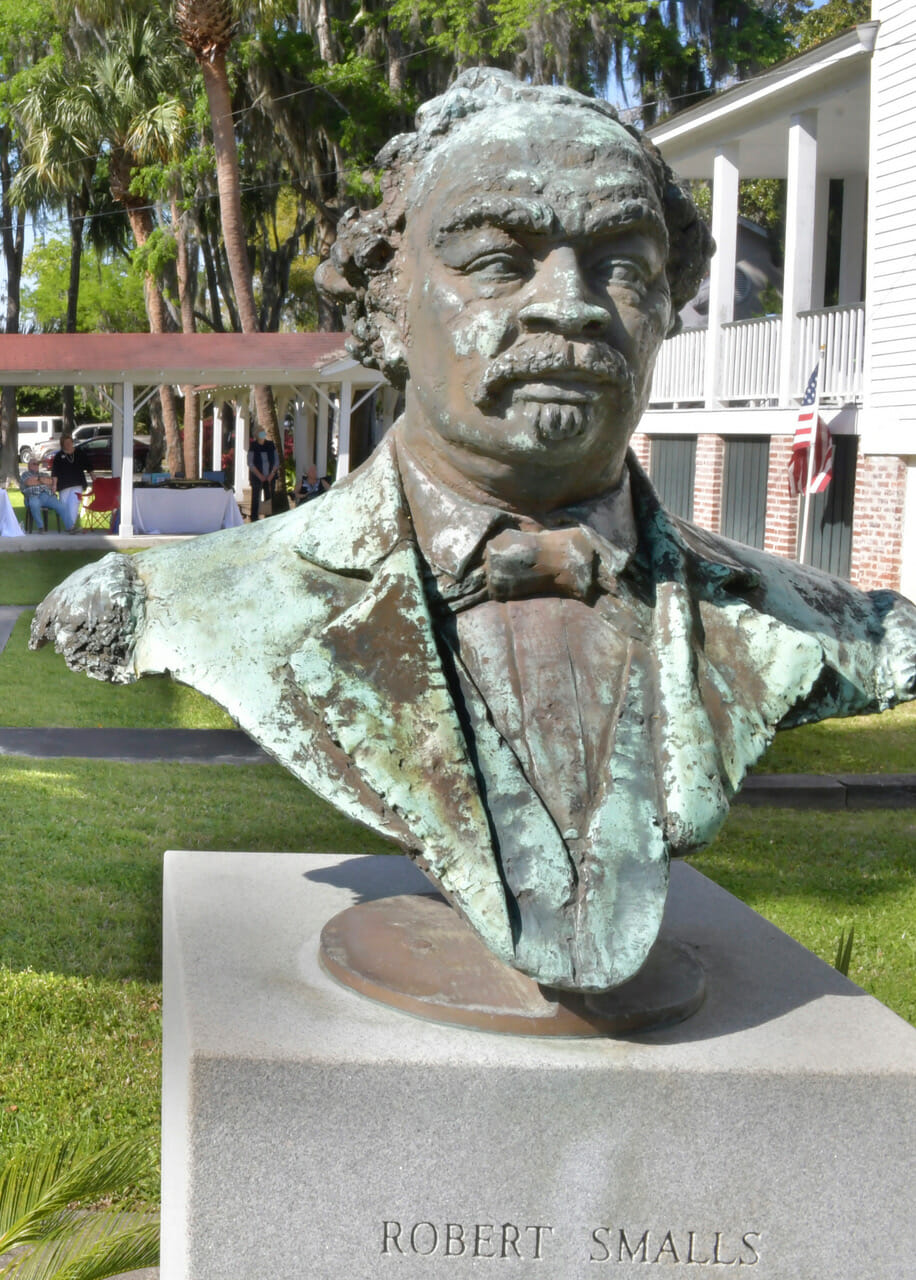Is an outdoor advertising company using a recently amended ordinance to skirt Beaufort County’s billboard ban? Are they now gearing up to sue?
By Mindy Lucas
Is a national billboard company using a recently amended local ordinance to skate around a ban on new billboards in Beaufort County?
An upcoming hearing to decide the fate of two billboards along Trask Parkway (U.S. Highway 21) may take up that question after Beaufort County issued a stop work order on the signs recently.
The billboards are owned by Adams Outdoor Advertising, a privately held company which has been called the fourth largest out-of-home advertising company in the United States.
Beaufort County issued the stop work order on April 12, the county’s administrator Eric Greenway said by phone on Monday, and has taken a “citations code enforcement action” for violation of the ordinance.
A hearing will be held in Beaufort County Circuit Court on June 9 and the county is also preparing for “a more protracted and longer legal battle,” he said.
Adams Outdoor Advertising has a history of suing municipalities that impose certain restrictions on billboards.
The company sued the town of Mount Pleasant in 2020 after the town rejected the company’s requests to erect new digital billboards and convert traditional billboards to digital signs. It has also sued municipalities in other states.
Beaufort County does not currently allow new billboards and does not allow internally illuminated signs. Companies can paint or refinish the surfaces of the signs or structures in order to maintain them but does not permit “substantive maintenance.”
But a recent change to the text of the ordinance may be complicating matters.
In October, Beaufort County Council voted in favor of amending the Community Development Code to allow for “minor modifications to billboards to improve safety standards during hurricanes and high wind events,” after the company petitioned the county for the change.
The hurricane safe signs were to be made of a material that, if ripped off by strong winds, would not cause any harm to people or property. However, rebuilding or replacing the foundation of billboards is still not allowed under the current ordinance, officials say.
The company was in the process of replacing the poles that held up the sign when the stop work order was issued, Greenway said.
Adams Outdoor, however, said it is going by regulations governed by the state’s Department of Transportation (SCDOT).
When reached for comment earlier in the week, the company’s General Manager Liz Mitchum said, while she could not respond to questions asked by reporters by phone due to the company’s corporate policy, she could send a bulleted statement addressing the issue.
According to the emailed statement, the company applied to repair and rebuild the billboards under an SCDOT regulation which allows for the “repair/ rebuild of nonconforming billboard in the event the same is partially damaged by wind or other natural forces.”
The statement went on to say that Adams Outdoor received approval from SCDOT for the work and that “no local government permit or permission is necessary.”
“Nevertheless, prior to performing the work, Adams informed Beaufort County that it would be performing the work approved by SCDOT and supplied Beaufort County with a copy of the approved applications,” the statement said.
State legislators and those watching changes to the state’s billboard laws over the years have said the highway act was meant to get rid of billboards in disrepair, not securely tied down, falling down, or not properly permitted, or those considered “non-conforming.” The act wasn’t meant or shouldn’t override county regulations, some have also noted.
Under Beaufort County’s current ordinance the county’s Code Enforcement Department has the ability to issue a notice to the permitted party if a sign becomes dilapidated or structurally unsound so that the sign can be removed.
Two county council members took issue with the recent motion to amend the ordinance to allow for the safety modifications when it passed 9 to 2 in October. Both Alice Howard and Paul Sommerville voted against the measure.
“As I think everyone knows, the billboards are all grandfathered,” Sommerville said. “The idea is to get rid of them and all this does is prolong the life of them.”
Digital billboards coming to Beaufort?
Adams Outdoor also recently applied for permits to convert 10 existing signs at locations throughout the county to digital, Greenway confirmed on Monday.
The company had marked the box on the applications, dated April 27, that states the signs would be illuminated. The application also states internally illuminated signs are prohibited in Beaufort County.
The applications list at least two locations on Sea Island Parkway and Trask Parkway and three along Parris Island Gateway.
The value of the 10 signs, according to the applications, totals $1.7 million dollars. They do not specify how much revenue the signs would generate for the company.
Questions sent in a separate email to the company about the permits and what exactly they include went unanswered at press time.
While the company can apply for the permits, it doesn’t mean they will be approved, Greenway said. The process for reviewing the applications has just started, he said.
Adams Outdoor has fought for digital billboards in Beaufort County in the past.
The strategy of applying for permits to convert current billboards to digital is the latest in a long line of aggressive tactics, including legal action, the company has employed to fight state and local ordinances that do not favor them, some say.
“This is not just a new billboard here and there,” said Chuck Newton chair of the Sea Island Coalition, an area group which is concerned about the effects the revised ordinance might have on signs throughout the area.
“Beaufort County prohibited billboards several years ago, and overturning a carefully-considered and even-handed policy establishes a horrible new precedent …,” he said.
After Adams Outdoor filed suit against the town of Mount Pleasant in 2020, they then offered to drop the lawsuit if the town would approve four new digital billboards and the conversion of one existing billboard to a digital format, effectively dropping planned digital billboard conversions at the base of the Arthur Ravenel Jr. Bridge and at a shopping plaza in the town, according to a Dec. 26 article in The (Charleston) Post and Courier.
The lawsuit claims Mount Pleasant’s sign ordinance violates its civil rights and refers to the U.S. and S.C. constitutions. The company has asked that their permits be approved and damages and legal fees be paid, according to the newspaper.
The company is also challenging billboard regulations in Virginia Beach, Va., and has challenged regulations in Madison, Wis. However, a federal judge there dismissed the company’s lawsuits, local newspaper reports stated.
Still, many residents are left wondering how will laws meant to clean up South Carolina’s roadways now be used to open the door to other types of advertising and if state laws will be used to trump local county ordinances.
Some states, particularly those where tourism and natural resources are driving forces in the economy, have banned billboards altogether. Hawaii, Alaska, Vermont and Maine all do not currently allow billboards, or “off-premise” signs.
“To the extent Adams is successful here and in Mt. Pleasant and other jurisdictions where digital boards are an issue, we change the face of South Carolina forever,” Newton said. “Billboards only go up, and are seldom if ever taken down.”
Mindy Lucas is the Beaufort reporter for The Island News and is a staff writer for Lowcountry Weekly. She can be reached at mindy.islandnews@gmail.com.








